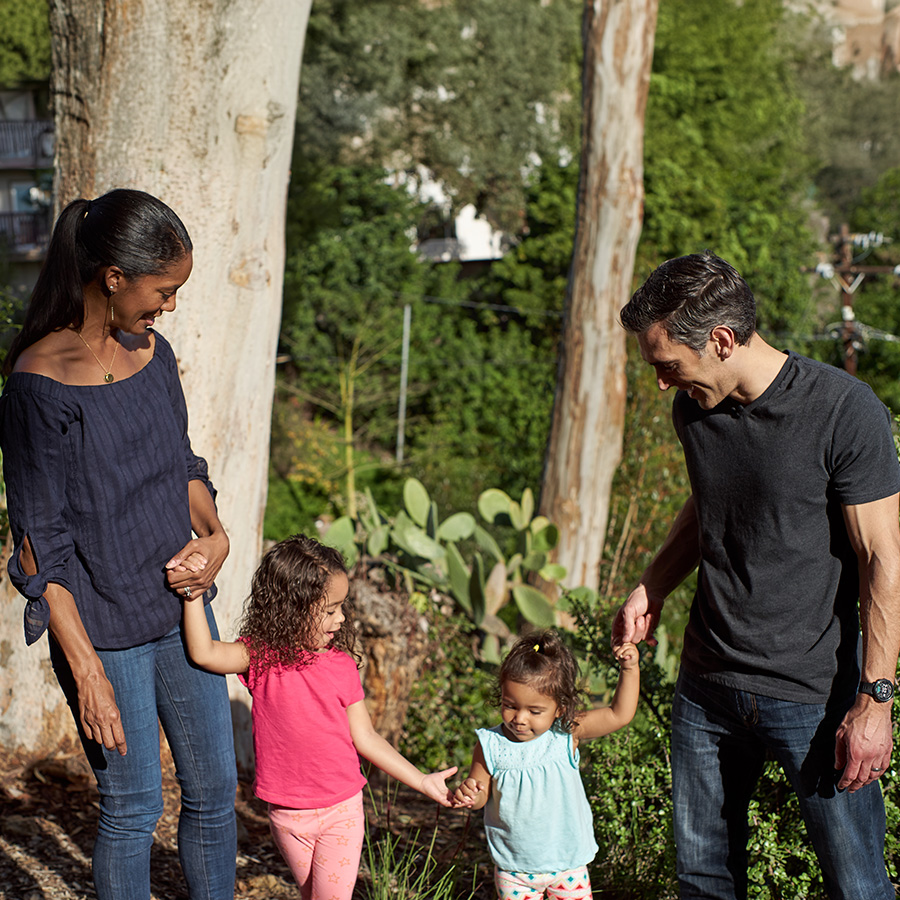
Young family holding hands walking outside together
Program seeks to advance health research across the lifespan
The National Institutes of Health’s (NIH) All of Us Research Program has started limited enrollment of children from birth through age 4 at five partner health care organizations across the country. Expanding participation to children offers researchers the opportunity to examine how health and disease progress through the lifespan, and starting with this age group provides the greatest potential for advancing research from infancy to childhood and adolescence.
“Experiences of early childhood shape our lives into adulthood,” said Josh Denny, M.D., M.S., chief executive officer of All of Us. “Data from children and parents will allow researchers to disentangle the biological, social, and environmental influences that impact our health over time.”
NIH has been working to include pediatric participants in All of Us since the program launched nationally in 2018. Recruiting this special population involved extensive planning, protocol development specific to children, and updates to the program’s technology platforms.
Recognizing that many groups have been left out of health research in the past, All of Us aims to gather health information from 1 million or more people who reflect the diversity of the United States. Participant contributions are helping to build one of the largest, most diverse health research resources of its kind that can be used by researchers to gain insights into health and a wide range of diseases and conditions.
The program began a short pilot phase for pediatric enrollment in late 2023 and modified the enrollment process after inviting feedback from partners and parents. A few changes were made, including offering a range of options for giving biosamples, such as blood draws and different methods of providing saliva samples. In addition, all enrollment materials now are available in English and Spanish.
“Pediatric research can increase knowledge of risk factors, effective preventions and therapeutic approaches for diseases of childhood and beyond,” said Diana W. Bianchi, M.D., pediatrician and director of NIH’s Eunice Kennedy Shriver National Institute of Child Health and Human Development.
With existing funding, the program is aiming to enroll a few hundred children total with their families this calendar year. Pediatric participants, with support from their parents or guardians, can share physical measurements, biosamples, and data from electronic health records (EHRs). Pending availability of funds, the program hopes to expand pediatric enrollment to include older children and additional sites nationwide.
Data from the program’s pediatric participants will be available in the Researcher Workbench, a secure cloud-based platform for data analysis and collaboration, in the future. In the meantime, of the more than 560,000 adult All of Us participants who have completed initial surveys and provided biosamples, at least 20,000 have already shared personal childhood health information through EHRs, with some data spanning at least three decades.
All of Us is developing pediatric enrollment capacity at five partner organizations, including two federally qualified health centers:
- All of Us, Pennsylvania with the University of Pittsburgh
- University of Arizona and Banner Health
- Henry Ford Health in Michigan
- San Ysidro Health in California
- Community Health Center, Inc. in Connecticut
For more information about All of Us, visit www.allofus.nih.gov.
